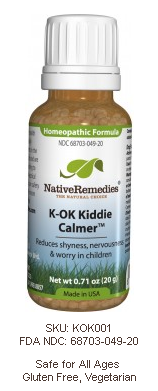5 Foods to Fight Inflammation
By Rachel Zachar You probably hear the term "inflammation" often, but you might not be quite sure what exactly it means. Inflammation is defined by Medical News Today
as a mechanism your body uses to protect itself. More specifically,
inflammation plays a key part in your body's immune and healing
responses, as it works to remove harmful stimuli.
You probably hear the term "inflammation" often, but you might not be quite sure what exactly it means. Inflammation is defined by Medical News Today
as a mechanism your body uses to protect itself. More specifically,
inflammation plays a key part in your body's immune and healing
responses, as it works to remove harmful stimuli.If you're experiencing inflammation in some part of your body, it might manifest through symptoms of irritation like swelling and redness. While inflammation is necessary for healing your body, sometimes inflammation can become chronic or persist well beyond its typical length of staying time. Once you've visited your doctor and had your inflammation issue properly checked out, you can decide if you'd like to try some anti-inflammatory options.
Certain foods can help reduce inflammation, which sometimes may be a catalyst in the development of diseases such as rheumatoid arthritis, heart disease, many cancers and aging diseases. Keep reading to find out some foods that can contribute anti-inflammatory support into your diet.
1. Cinnamon
In a study performed on mice in 2012 in the journal BMC Complementary & Alternative Medicine, the results showed cinnamon extract lowered substances that caused inflammation and tissue damage; these results may carry over into humans, but more research is needed. Try sweetening your coffee or plain yogurt with a dash of cinnamon instead of sugar or other artificial sweeteners.
2. Olive Oil
While not technically a "food," olive oil holds a lot of power when it comes to providing anti-inflammatory support. Its antioxidant properties and polyphenol content make olive oil a great choice in combating inflammation. Antioxidants are essential in helping with cellular repair and preventing against free radical damage. According to research from the Institute of Human Nutrition, antioxidants can also provide protection from cytokines and oxidants that can damage healthy cell tissue by unnecessarily inciting the inflammatory response.
3. Sardines
Packed with omega-3 fatty acids, sardines can help ward off inflammation. In addition, the omega-3s in sardines and other types of fish can help reduce joint stiffness and pain -- two common symptoms of rheumatoid arthritis, an inflammation disease. If you’re not big on sardines or fish, taking fish oil supplements can help restore your omega-3 levels and rev up your inflammation defense.
4. Walnuts
As the powerhouse in the nut family, walnuts contain a high level of alpha-linolenic acid, an omega-3 fatty acid that works to stop inflammation in its tracks; it can also provide benefits for the health of your heart, blood pressure, cholesterol and blood vessels.
5. Pineapple
While one of the key selling points to eating pineapple is its high vitamin C content, it is also rich with bromelain, an enzyme that aids with digesting protein. Whole Health Chicago states that bromelain contributes anti-inflammatory effects by preventing the production of inflammation-causing compounds; in addition, bromelain can aid with breaking down a specific protein involved in blood clotting, which makes for healthier circulation and proper tissue drainage.
It’s possible to experience excessive inflammation without being aware of it, so if you suspect it even in the slightest, it’s a good idea to speak with your doctor. These foods are only intended to be used to enhance your diet and provide support for reducing minor inflammation. Excessive or chronic inflammation, or diseases like rheumatoid arthritis, for example, may require medication for treatment. Don’t depend on these foods as the sole method of fighting inflammation.
We hope that incorporating these foods into your diet is able to provide you with some anti-inflammation support. Check out our selection of wellness essentials and supplements at eVitamins, and have a great day!
Sources: http://www.evitamins.com/a/5-foods-fight-inflammation-1074#.VHkspmfaIyk















